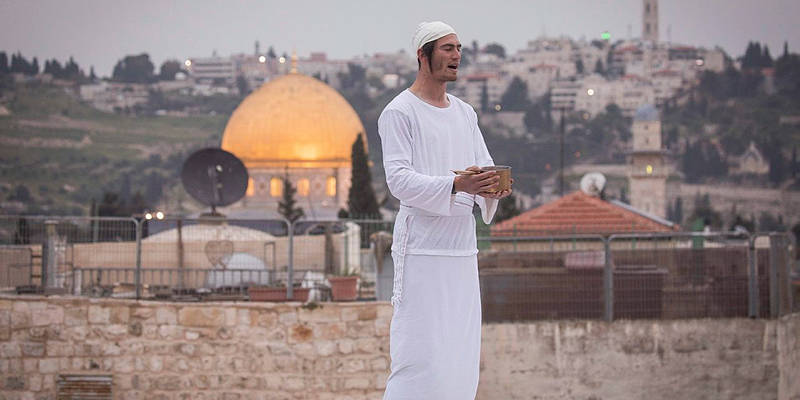Although nowadays there is no Passover sacrifice, as there is no Holy Temple in Jerusalem, we can still learn from it.
By Rabbi Ari Enkin, Rabbinic Director, United with Israel
Back in ancient times, the climax of the Passover Seder was the eating of the Passover sacrifice, which took place at the end of the festive meal.
Unfortunately, because we do not currently have a Holy Temple in Jerusalem, the entire sacrificial rite has been discontinued and we are unable to offer any sacrifices, including the Passover lamb.
Today, we eat an extra portion of matza at the end of the Seder in order to recall the Passover sacrifice. Nevertheless, there are still many lessons we can learn from the Passover sacrifice and from the many rules that were relevant to it.
One of the laws related to the Passover sacrifice was the prohibition against breaking a bone of the animal in the course of eating it. The commentators discuss why this was so.
According to one interpretation, the reason is that breaking bones is an unbecoming and uncultured manner of eating. The Jewish People are labeled “a kingdom of priests and a holy nation,” not to mention that Jews are considered to be the “firstborn” of the King of Kings – a “nation of princes.” Instead of breaking bones in order to get to the meat, the Jews were commanded to eat it in a refined manner, with forks and knives, properly and patiently removing the meat from the bone.
Thus, the lesson of the broken bones teaches us to eat in a dignified manner. The dinner table is also a place where we can serve God by remembering that we are not animals. Just like the princes in Buckingham Palace eat in a refined way, so should we.
It is worth adding that the way we dress should also display our status as dignified people. We must never be seen looking dirty, unkempt or disheveled. That’s not the way of princes or anyone who carries himself or herself in a dignified manner.
Passover is the holiday marking our status of slaves to princes. We must live up to this standard every day of the year.
